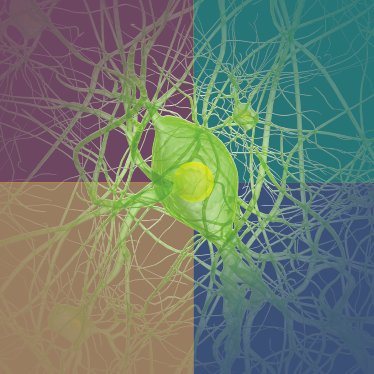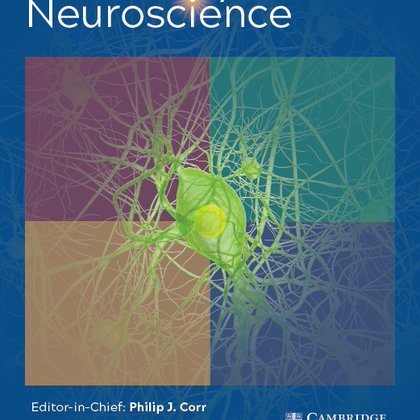
D.M. Altschul
@dremalt
Followers
243
Following
1K
Media
35
Statuses
1K
British Academy postdoc @ Edinburgh uni. Living organism. Psoriatic arthritic. Age dyschronic. Keystroke enthusiast. "And if not now, when?"
Edinburgh, Scotland
Joined May 2010
👇 Read a thread about this newly published #OpenAccess review below, by the author @dremalt 👇
My new review paper out (open acess) in @PNeuroscience! @CambUP_Psych All about great ape trait dominance, what it is, why it appears less prominently in humans, and why it is still important to study. https://t.co/Pz2pgWkBl3 Thread (1/x):
0
1
1
Which means there are many questions we can potentially address re: human and nonhuman primate D traits. Tho we might have been egalitarian, most of the world is clearly hierarchical, and D traits are very relevant to living in a hierachical world. 9/9
0
0
1
In these scenarios, its important to note that D did *not* disappear. It is still with us; in personality science it is a major aspect of E, and it has a large, valid, unique network of associations with other meaningful constructs. 8/9
1
0
1
4. Primate dominance, and primate interactions generally, are dyadic. Competitive bouts, grooming, etc. Human language shifted intactions away from the dyad, and toward E as we know it, in the context of a social world with less physical aggression and more verbal discussion. 7/9
1
0
1
3. Narcissism, as a trait, has quite a bit in common with D. High D individuals are a lot like narcissists, but without the "entitlement/exploitativeness" facet. 6/9
1
0
1
2. Dominance is still there, just dispersed across personality factors. "Fearless" D is a particularly broad measure of D that contains nuances from each OCEAN factor. Norms against D-linked behaviors are one possible hypothesis for why this might be. 5/9
1
0
1
1. Egalitarianism. In theory, for a big chunk of time between when we separated from chimps/bonobos and the agricultural revolution, humans were mostly egalitarian. This could have selected against strong D traits. This hypothesis has been increasingly challenged tho. 4/9
1
0
1
@PNeuroscience @CambUP_Psych The paper includes lots of detail on what hierachical social structures are like and how they differ across species, plus what the D traits are, what they encompass, but I'll jump to the possible (non-mutually exclusive) explanations for what happened to D in humans. 3/9
1
0
1
@PNeuroscience @CambUP_Psych Dominance (D) is a top-level, big & broad trait in all the great apes... except humans, where it is an extraversion facet. Apes live with hierarchical social orgs, but almost all modern humans do too, so why doesn't D appear as prominent? 2/9
1
0
2
My new review paper out (open acess) in @PNeuroscience! @CambUP_Psych All about great ape trait dominance, what it is, why it appears less prominently in humans, and why it is still important to study. https://t.co/Pz2pgWkBl3 Thread (1/x):
cambridge.org
Whither dominance? An enduring evolutionary legacy of primate sociality - Volume 7
1
3
5
To all my loyal followers: I am going to take a break from this platform. I'm not deleting my account, but I won't be accessing twitter (and won't be able to). If you want to connect find me on the other site or email me.
0
0
1
Strong gibbon representation at the Edinburgh festival fringe this year.
0
0
2
No, academics do not "forget" to answer emails. They remember and feel bad about them, the guilt slowly building up, until the only way out is to fake their own death and move far, far away under a different identity to build a new life, a better one, with inbox zero and no shame
13
166
1K
Odesa Zoo rescues animals displaced by Kakhovka Dam catastrophe
english.nv.ua
The Odesa Zoo has taken care of pets whose owners were forced to flee the country since the full-scale invasion of Ukraine began. Now it also cares for wildlife affected by flooding after the Russian...
0
0
1
"If it pays to be a jerk, why isn’t everyone that way?" @EurekAlert A new paper published in @PeerJLife showed that male chimps with more brutish behavior were more successful than their more conscientious counterparts. 🧵 #ScienceTwitter
https://t.co/Kl5wDMDVbg
eurekalert.org
A new study appearing April 24 in the journal PeerJ Life and Environment found that male chimps with more bullying, greedy and irritable personalities reached higher rungs of the social ladder and...
1
3
8
Hot off the presses! New Gombe chimpanzee personality paper led by Alex Weiss @EdinburghUni and @FeldblumJoseph @PeerJLife
https://t.co/qdoaIXp0UZ
#AnimalBehavior #Anthropology #EvolutionaryStudies #Zoology
peerj.com
Personality traits in many taxa correlate with fitness. Several models have been developed to try to explain how variation in these traits is maintained. One model proposes that variation persists...
0
9
24
Our new paper on dominance and fitness across the lifecourse in male chimpanzees!
0
1
7
This week at 2pm @dremalt will be leading discussion on "chapter 10: Socialization of Bowles & Gintis "A Cooperative Species: Human Reciprocity and its Evolution" Link to text available in the discord. All welcome.
0
3
4
A @PsychScience article by @ScottSleek on how #machine #learning is transforming psychological science features a study with #LBC1936 data examining the most significant predictors of #loneliness: https://t.co/X3xyfkEvXL
@dremalt
@MatthewIveson
@UoE_Psychology
@EdinUniMentalH
0
5
5







